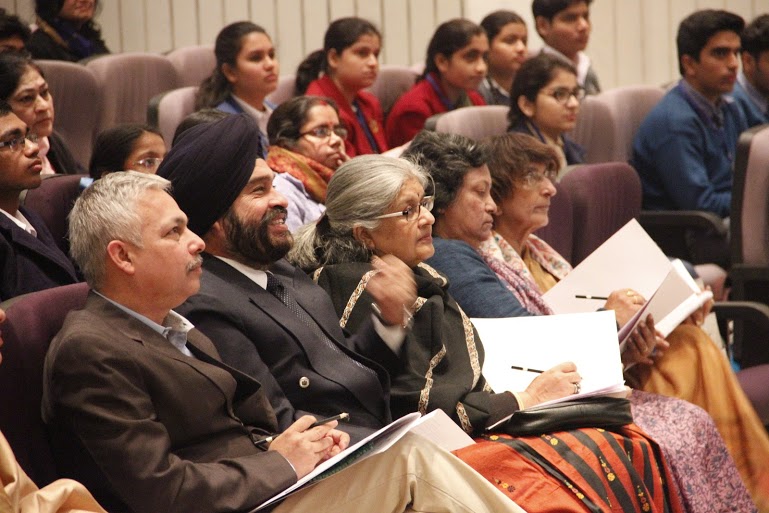The biggest challenge of our education system is to leverage the learning of concepts and theories with the use of modern technology to create engaging, relevant, and personalized learning experiences for all students that represent the reality of their future.
Most B-schools and universities follow a teaching style that is a blend of theory and practical. The traditional methods of teaching within the four walls of the classroom that include lectures and textbooks do set the basic foundation for a student. However, to attain the skills, which will be required at the workplace, these concepts have to be applied. The application of the learning will ensure that the student has been able to improve their critical thinking skills. The two years of PGDM should comprise of this blend of theory and practice giving the student a comprehensive curriculum.
Subjects like Entrepreneurship give the students ample opportunities to collaborate and work with peers. For subjects like this, the implementation of simulation is the best solution as it deals with the real-life application of the knowledge gained in the classroom.
What are the benefits of Simulation?
Simulations are games that follow a system or a phenomenon. The players are expected to achieve certain pre-specified goals and the environment of the simulation is pre-defined through algorithms and programming. The biggest benefit of simulations is that students get involved in playing the simulation and they consider it as a game or a competition in the real sense. In the process of playing the simulation, the students start applying the concepts that they have learnt in the classes. This provides them with an opportunity to find out how the concept actually works.
It is also the best way to implement Action Learning, i.e., learning by doing. These days, simulations are available online so they can be accessed from anywhere. Students can form teams and access the simulation from any part of the world. It also encourages more interactions among the students that set the platform for learning from each other. They can also afford to do mistakes and learn from it as the stakes are low and they have nothing to lose in terms of money or any other resource.
How to include Simulation in learning pedagogy?
Since simulations are beneficial for management students, it is imperative that it is included in the learning pedagogy. IILM has been implementing simulations in its UG as well as PG courses. Some of the key aspects that need to be considered for including Simulation in the learning pedagogy are:
- Decide the learning objectives of the subject and check the relation between the concepts taught and the simulation game. There should be a perfect match between the learning objectives of the course and the skills that the simulation tests in the student.
- The simulation game should be in a sequence. The sequence should move in terms of complexity. For example, a simulation may be played over 4 quarters and the decisions that the players have to take in the initial quarters should be simpler than the ones that they have to take in the later stages.
- The class has to be guided by a coach who will channel the thoughts and ideas of the students. There has to be a little bit of hand holding in the initial stages of the simulation so that the students understand the process.
- The coach can first give a brief synopsis of the situation in which this simulation is being conducted. If required, the initial stages can be demonstrated by the coach so that the students can follow his or her footsteps.
- As the students play the simulation, the coach should encourage the students to think about their decisions and predict the consequences of their decisions. The coach will then have to connect this analysis with the learning objectives of the course.
- The teams should be able to present their decisions and if required prepare a brief report of the simulation. The coach can then give their feedback so that the concepts become clear to the students.
In the present dynamic environment, the main focus of higher educational institutions is to enable student-centred teaching. This will be possible only when learning happens in an active and collaborative environment. The inclusion of Simulations in the teaching and learning of management concepts will not only make the students better learners but will also prepare them to face the challenges of the corporate world.
To know about other Management teaching best practices like case based learning, mentoring have a look at the following:
Business Case Studies – An Effective Teaching Tool
https://blog.iilm.edu/case-based-teaching-learning-management/








 The Winning team – Tagore International School, East of Kailash
The Winning team – Tagore International School, East of Kailash 
